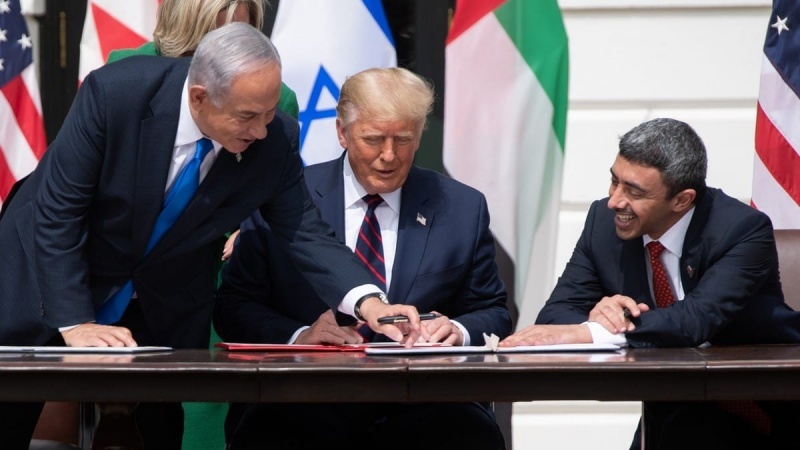Pars Today's Iran and world news package
“We don’t trust Israel’s friends!” Why did Iran exclude UAE from Tehran-Washington negotiations?
Pars Today - An Iranian expert cited the United Arab Emirates’ close ties with the Zionist regime as the primary reason for Iran’s distrust of Abu Dhabi in delivering a response to the U.S. letter regarding negotiations with Iran. Anwar Gargash, the diplomatic advisor to the UAE president, recently led an official delegation to Tehran and met with Iran’s Foreign Minister, Seyyed Abbas Araghchi.
During this meeting, Gargash handed over a letter from U.S. President Donald Trump addressed to Imam Khamenei, the Leader of the Revolution, to Iran’s foreign minister. According to Pars Today, citing the website Khabar Online, political analyst Rasoul Salimi wrote in an analysis: One of the main reasons Iran refrained from responding to Trump’s letter through the UAE is its distrust of the country due to its close relationship with the Zionist regime.
The UAE had previously normalized its relations with Israel by signing the Abraham Accords, an action that Tehran views as aligning with its primary regional enemy, meaning Abu Dhabi cannot serve as a neutral mediator for Tehran.
The UAE’s limited and unreliable mediation record
Salimi added: Unlike Oman, which has a long and successful history of mediation between Iran and the U.S., the UAE lacks significant experience in this area and is better known as an economic player rather than a diplomatic intermediary.
Experts say the UAE was likely chosen to deliver Trump’s letter due to its close ties with Washington, not because of its standing with Iran. In fact, over the past decades, the UAE has been more engaged in regional rivalries with Iran, particularly over the three islands (Greater Tunb, Lesser Tunb, and Abu Musa).
Domestic political and strategic considerations
According to this political expert, Iran’s decision to exclude the UAE also stems from domestic considerations. At a time when Trump’s military threats and nuclear tensions dominate headlines, any cooperation with a country close to Israel could spark political criticism within Iran.
Oman’s neutrality and independent foreign policy
The analysis notes: Unlike the UAE, Oman pursues a neutral foreign policy and has avoided entanglement in regional rivalries. Not only has Oman maintained its relations with Iran, but it has also refrained from joining anti-Iran coalitions like the Abraham Accords.
This neutrality is bolstered by Oman’s geographic position at the Strait of Hormuz, a location critical to both Iran and the U.S. for stability. The political expert argues that this position gives Oman a strong incentive to reduce tensions, enhancing its diplomatic credibility.
Historical relations and mutual trust with Iran
Salimi further stated: Iran-Oman relations date back to before the Islamic Revolution and have been preserved even during sanctions. Oman remained neutral during the Iran-Iraq War and helped Tehran improve its ties with Arab countries. This mutual trust has made Oman a natural choice for Iran.
Salimi emphasized: Choosing Oman over the UAE is part of Iran’s strategy to maintain independence in indirect diplomacy. With this decision, Iran demonstrated its unwillingness to accept channels imposed by the U.S. or its allies, viewing this as “active diplomacy” aimed at maintaining an equal stance against U.S. pressure.
MG/UR



